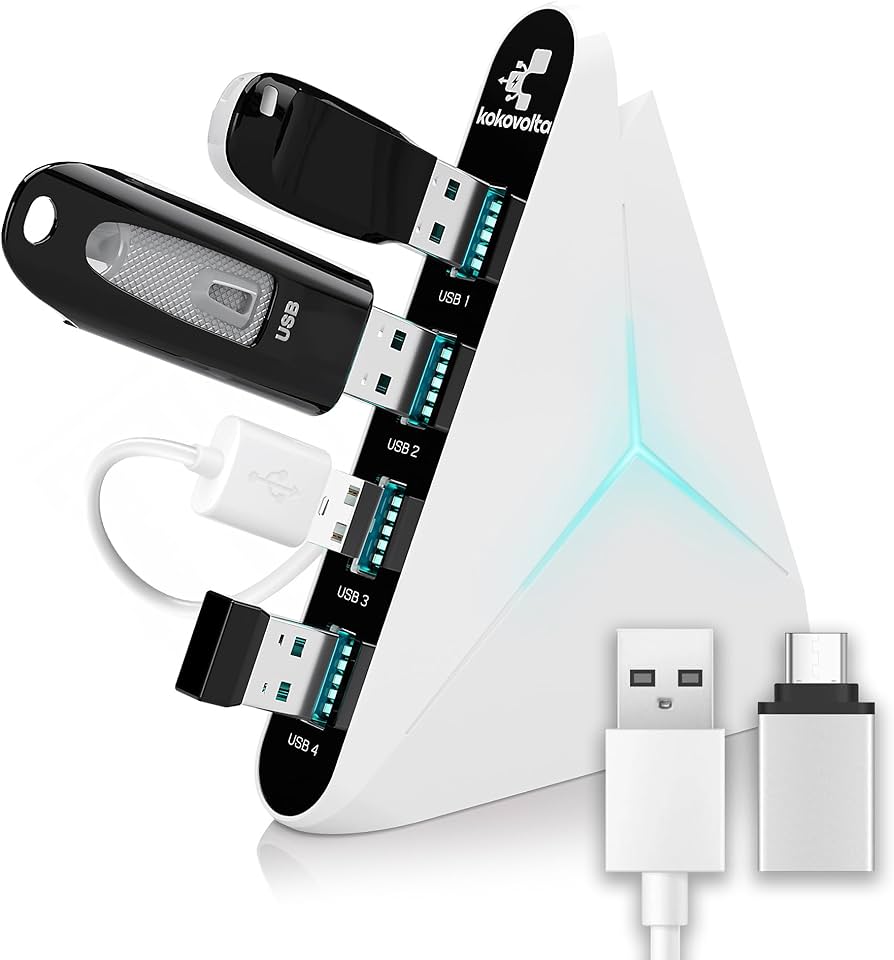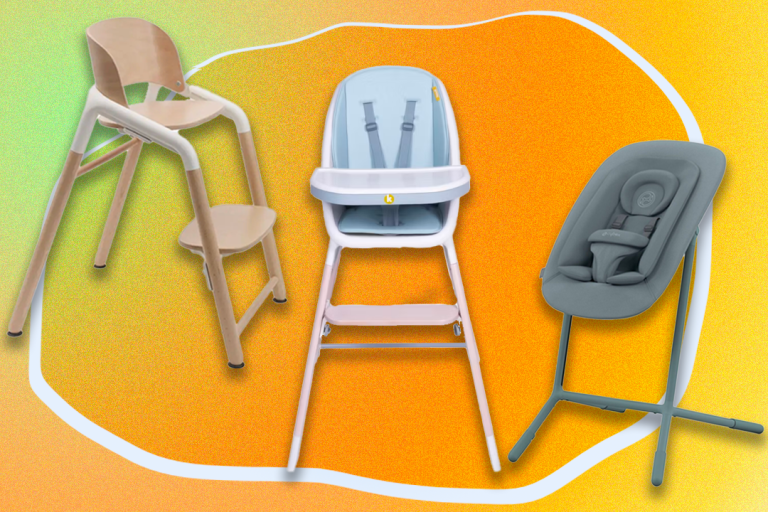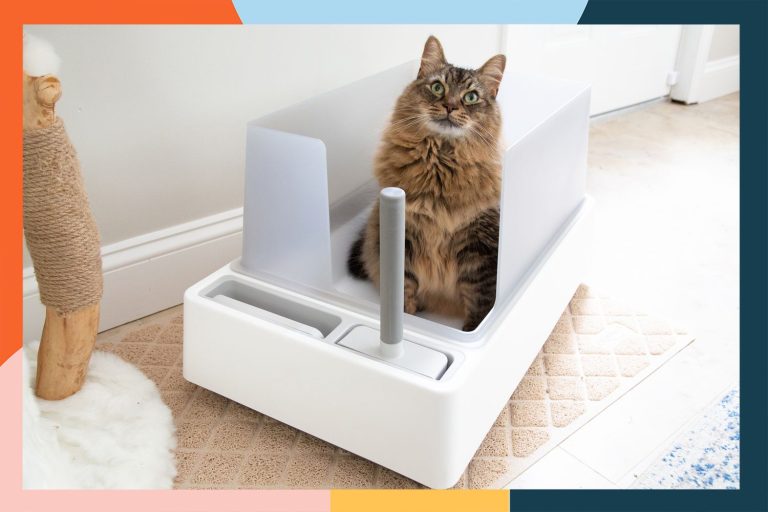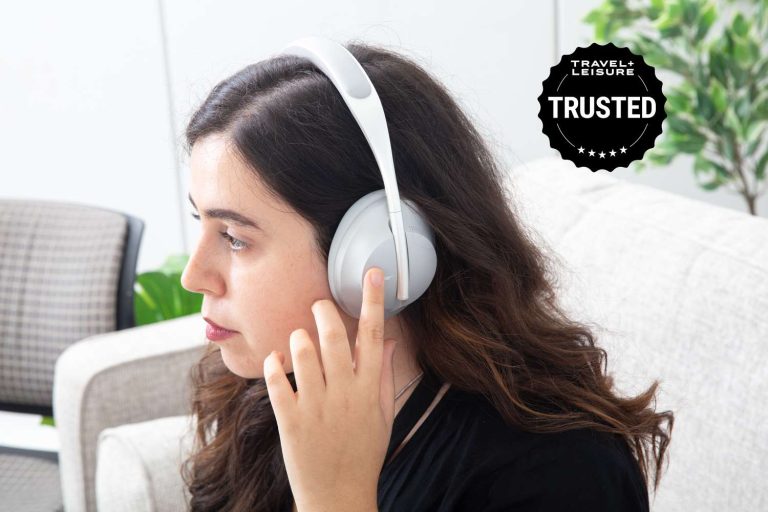9 Best USB Hubs: Fast Data Transfer, Compact Designs & Powerful Charging
In today’s tech-savvy world, juggling multiple devices can be a hassle without the right tools. Whether you’re a digital nomad, a gamer, or just someone with a plethora of gadgets, a reliable USB hub is essential. It not only expands your connectivity options but also enhances your productivity by allowing you to manage your devices more efficiently.
But with so many options on the market, how do you choose the best one? We’ve done the legwork for you and compiled a list of the 9 best USB hubs available. From lightning-fast data transfer speeds to versatile port selections, these hubs cater to a variety of needs and preferences. Dive in to find the perfect USB hub that suits your lifestyle and keeps your tech game strong.
1. Best Overall USB Hub
Selecting the best overall USB hub means finding one that offers a perfect balance of functionality, quality, and user-friendly design. Let’s dive into what makes this hub top-notch.
Key Features
- Fast Data Transfer: With a USB 3.0 interface, it ensures data transfer speeds up to 5Gbps, perfect for transferring large files quickly.
- Multiple Ports: It provides seven USB ports, accommodating all your devices, from keyboards to external hard drives.
- Compact Design: Its slim and lightweight build makes it easy to carry, ideal for on-the-go use.
- Powerful Charging: Equipped with power delivery ports, it supports fast charging for compatible devices.
- Built-in Protection: Features over-current and short-circuit protection, ensuring the safety of your connected devices.
Pros and Cons
Pros:
- High-Speed Performance: Enables swift data transfers, reducing wait times.
- Versatility: Multiple ports support various devices, enhancing productivity.
- Portable: Compact design fits in bags, making it travel-friendly.
- Safety Features: Protection mechanisms safeguard your gadgets against potential damage.
- Price: Can be pricier compared to basic models.
- Port Placement: Closely spaced ports might be inconvenient for larger USB devices.
This USB hub stands out for its excellent data transfer speeds, ample port availability, and safety features, making it a top choice for both home and office use.
2. Best Budget USB Hub
A budget-friendly USB hub can meet your needs without breaking the bank. Here’s what makes the best budget USB hub stand out.
Key Features
Affordable Price: You get great value without sacrificing essential functionalities.
Multiple Ports: Typically includes 4 to 7 ports to connect various devices.
Compact Design: Easily fits into your bag, making it perfect for travel.
Plug and Play: Requires no additional software, making setup straightforward.
Pros and Cons
Pros:
Affordable: Costs less, making it accessible for everyone.
Lightweight: Easy to carry around due to its compact size.
Easy to Use: Simple plug-and-play functionality.
Cons:
Limited Power Output: May not support power-hungry devices.
Basic Features: Lacks advanced features like fast charging or extra protection.
Short Cable: Sometimes comes with a shorter USB cable, limiting placement options.
3. Best USB Hub for High Speed Data Transfer
If you’re looking for the best USB hub for high-speed data transfer, focus on those offering enhanced connectivity and quick file transfers.
Key Features
- USB 3.0 Ports: Ensure your hub has USB 3.0 ports, providing transfer speeds up to 5 Gbps.
- Multiple Ports: More ports mean you can connect various devices simultaneously. Look for at least four or more.
- Backward Compatibility: Hubs that are compatible with USB 2.0 and 1.1 devices enhance versatility.
- External Power Supply: Some hubs come with an external power option for faster, more consistent data transfers.
- Plug-and-Play: Easy setup without needing extra software ensures convenience.
Pros and Cons
Pros:
- Fast Data Transfers: Transfer large files quickly with USB 3.0 or higher.
- Multiple Connections: Connect several devices at once without sacrificing speed.
- Universal Compatibility: Use with various USB devices, including older versions.
- Enhanced Performance: External power can boost performance and reliability.
- Higher Cost: Premium hubs with high-speed capabilities can be more expensive.
- Power Requirements: Some hubs require external power, which can be less convenient.
- Size: High-performing hubs may be larger, taking up more desk space.
Choosing the right high-speed USB hub lets you transfer data efficiently while keeping your devices connected and organized.
4. Best USB Hub for Charging Devices
Choosing the best USB hub for charging devices can make a big difference in the efficiency of your tech setup. Look for hubs with multiple fast-charging ports and a high power output to keep your gadgets ready to go.
Key Features
- Multiple Fast-Charging Ports: Ensure the hub has several high-speed charging ports, preferably with at least one or two USB Type-C ports for modern devices.
- High Power Output: Choose a hub with a higher wattage, usually around 60-100 watts, to adequately support multiple device charging simultaneously.
- Smart Charging Technology: Opt for hubs with intelligent charging technology that automatically adjusts the output to the connected device’s needs.
- Safety Features: Make sure the hub includes built-in safety features such as overcharge protection, short circuit prevention, and temperature control.
- Durable Build: Look for products made from robust materials like aluminum to ensure longevity and heat dissipation.
- Pros: Efficient charging of multiple devices, convenient single cable setup, optimized charging speeds, and safety features.
- Cons: Higher price point compared to basic hubs, potentially bulkier design due to power requirements, and reliance on a stable power source.
5. Best USB Hub for Travel
Traveling with multiple devices requires a reliable, compact USB hub. The perfect USB hub for travel should be lightweight and versatile, offering you convenience and functionality on the go.
Key Features
- Compact Design: Choose a USB hub that’s slim and easily fits into your travel bag. Look for hubs with foldable cables or detachable components.
- Multiple Ports: Consider a hub with at least 4 USB ports, including USB 3.0 and USB-C options, to connect various gadgets like laptops, tablets, smartphones, and cameras.
- Durable Build: Opt for a hub made from sturdy materials like aluminum or reinforced plastic to withstand the rigors of travel.
- Power Delivery: Select a hub featuring Power Delivery (PD) to charge your devices efficiently. Prioritize hubs with at least 60W PD capability.
- Universal Compatibility: Ensure the hub works cross-platform, supporting both Windows and macOS, as well as Android and iOS devices when necessary.
- Plug and Play: Go for hubs that don’t require drivers, providing hassle-free connection immediately upon plugging in.
Pros and Cons
Pros:
- Portability: Lightweight and compact design makes it easy to carry around.
- Versatility: Multiple port options allow connection of various devices.
- Durability: Sturdy construction ensures longevity, even with frequent use.
- Power Efficiency: Power Delivery feature charges your devices swiftly.
- Limited Ports: Smaller size may mean fewer ports compared to desktop hubs.
- Cost: High-quality travel hubs with advanced features can be pricier.
- Power Constraints: Some portable hubs may not support high-power devices.
Selecting a well-rounded USB hub specifically tailored for travel enhances your efficiency and organization, ensuring you stay connected while on the move.
6. Best USB Hub for Mac Users
Mac users demand seamless connectivity, sleek design, and reliable performance in a USB hub. Here’s what makes the best USB hub for Mac users stand out.
Key Features
- Thunderbolt 3 Compatibility: Ensures lightning-fast data transfer speeds and supports video output.
- USB-C Ports: Offers compatibility with the latest MacBook models.
- Multiple Ports: Includes a mix of USB-A and USB-C ports to connect both old and new devices.
- Power Delivery (PD): Allows charging your MacBook while connected to the hub.
- Compact Design: Matches the sleek aesthetic of Apple products, making it portable and attractive.
Pros and Cons
Pros:
- Seamless Integration: Works perfectly with macOS, ensuring hassle-free connectivity.
- High-Speed Performance: Thunderbolt 3 and USB-C ports provide rapid data transfer.
- Elegant Design: Complements the aesthetics of Mac devices.
Cons:
- Price: Typically more expensive due to advanced features.
- Port Limitations: Some hubs may lack a sufficient number of diverse ports.
Choosing the right USB hub enhances your MacBook’s functionality, providing both speed and style in an elegant design.
7. Best USB Hub for PC Gamers
If you’re a PC gamer, you know how important it is to have top-notch peripherals and accessories. The right USB hub can enhance your gaming experience by offering efficient connectivity and rapid data transfer. Here’s what makes the best USB hub for PC gamers stand out.
Key Features
- High-Speed USB 3.0 Ports: Ensures fast data transfer for external hard drives, gaming mice, and keyboards.
- Multiple Ports: Offers sufficient ports for connecting various devices like controllers, headsets, and VR gear.
- RGB Lighting: Adds style and complements your gaming setup with customizable lighting.
- External Power Supply: Provides stable power to connected devices without draining your PC’s resources.
- Durable Build: Ensures longevity with high-quality materials and a sturdy design.
Pros and Cons
- Improved Performance: High-speed ports ensure seamless gameplay without lag.
- Enhanced Aesthetics: RGB lighting complements other gaming accessories.
- Versatility: Multiple ports accommodate a range of gaming devices.
- Stable Power Supply: External power ensures all devices receive consistent power.
- Higher Cost: Premium features often come with a higher price tag.
- Size: More ports and features may result in a bulkier design, which might not fit smoothly into compact setups.
8. Best Compact USB Hub
When space is a constraint, a compact USB hub can be a lifesaver. These hubs are designed to offer multiple ports without taking up too much room.
Key Features
Portability: Compact design makes it easy to carry in your bag or pocket. You won’t feel burdened while traveling.
Multiple Ports: Usually includes 3-4 USB 3.0 ports, ensuring you can connect several devices at once.
Lightweight: Often weighs less than 100 grams, making it effortless to carry around.
Fast Data Transfer: USB 3.0 ports provide quick data transfer speeds up to 5 Gbps.
Plug-and-Play: No need for external drivers, as it easily connects to your devices instantly.
Durable Build: Some models feature an aluminum casing to withstand daily wear and tear.
Pros and Cons
Pros:
Portability: Small and lightweight, perfect for on-the-go use.
Multiple Ports: Offers several ports in a compact design.
Fast Speeds: Ensures rapid data transfer with USB 3.0 technology.
Plug-and-Play: Easy setup with no additional drivers required.
Durable: Often robust and reliable due to high-quality materials.
Cons:
Limited Power: Might not support high-powered devices due to its compact size.
Fewer Ports: Usually offers fewer ports compared to larger hubs.
Higher Price per Port: Often more expensive per port compared to larger counterparts.
Choosing the best compact USB hub means balancing portability and functionality, ensuring you stay connected without compromising on convenience.
9. Best USB Hub with Advanced Security Features
When selecting a USB hub for sensitive environments, security features are crucial. Here’s what to look for in a USB hub that prioritizes advanced security measures.
Key Features
Secure Authentication: Ensures only authorized devices can connect.
Encrypted Data Transfer: Protects your data from unauthorized access.
Physical Protection: Durable materials and tamper-proof design.
Activity Monitoring: Real-time tracking to detect suspicious activities.
Multiple Ports: Accommodates various devices while maintaining security.
Compatibility: Works seamlessly with Windows, macOS, and Linux.
Pros and Cons
- Increased Security: Protects your data and devices effectively.
- Versatile Ports: Supports multiple devices securely.
- Real-time Monitoring: Alerts you to potential security threats.
- Higher Cost: Advanced security features can make the hub more expensive.
- Complex Setup: May require more configuration compared to basic models.
- Possible Compatibility Issues: Advanced security features might not be compatible with all devices.
Conclusion
Choosing the right USB hub can significantly enhance your productivity and device management. Whether you need fast data transfer, multiple charging ports, or a compact design for travel, there’s a perfect USB hub out there for you. Consider your specific needs, such as high-speed performance for gaming or secure data transfer for sensitive environments, to make an informed decision. Investing in a quality USB hub not only streamlines your workflow but also ensures your devices are powered and connected efficiently. Happy shopping!






